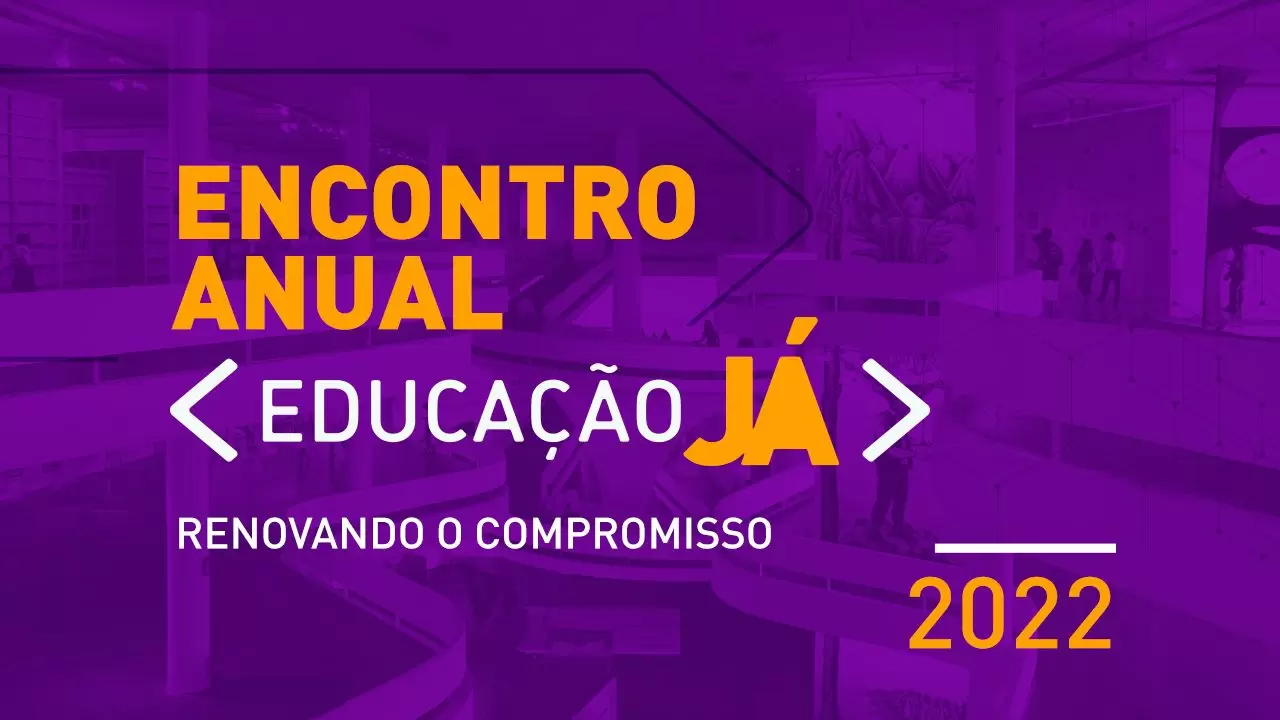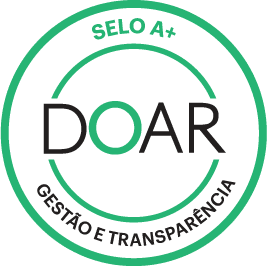Annual Meeting Educação Já: broad front voices urgency to prioritize Education in elections and next administrations
After two years of the pandemic, which bequeathed a challenging balance to Public Basic Education, Todos Pela Educação brought together, yesterday, 26, a broad front of experts, political leaders, managers and educators to renew their commitment to the recovery of Brazilian Public Education and of the Country, at the Annual Meeting Educação Já 2022: renewing the commitment. “Many children and young people were abandoned in the pandemic, many lost fathers and mothers and lived and are living in very challenging socioeconomic situations. Educational challenges that already existed have been expanded. We never need everyone’s commitment so much and this group here can make a difference”, said Priscila Cruz, the organization’s executive president.
A day of political commitment for Educação Já
The spirit of urgency and the political need to renegotiate the engagement with Education and future generations, especially in the face of the upcoming elections, in addition to the critical analysis of the pandemic period, were themes that permeated the entire meeting.
Throughout the day, statements by pre-candidates for the presidency were broadcast on what they would prioritize in their government plans in relation to Education, if elected. Names that sent their statements in alphabetical order, by surname: Felipe D’Avila (Novo), João Doria (PSDB), Ciro Gomes (PDT), André Janones (Avante), Luiz Inácio Lula da Silva (PT), represented by Aloizio Mercadante, and Simone Tebet (MDB). Regarding the selection criteria and the candidate Jair Bolsonaro, as we explained in a recent public position, we understand that the re-election of the current president poses a huge risk to democracy. That said, and considering that the defense of democracy is a non-negotiable value of Todos, it is not up to us to restrict the participation of any pre-candidate, so we invite all pre-candidates who obtained a score above 1% in at least three polls of intention to vote, independent, disclosed and registered with the TSE. Bolsonaro was the only candidate who did not respond to Todos’s invitation.
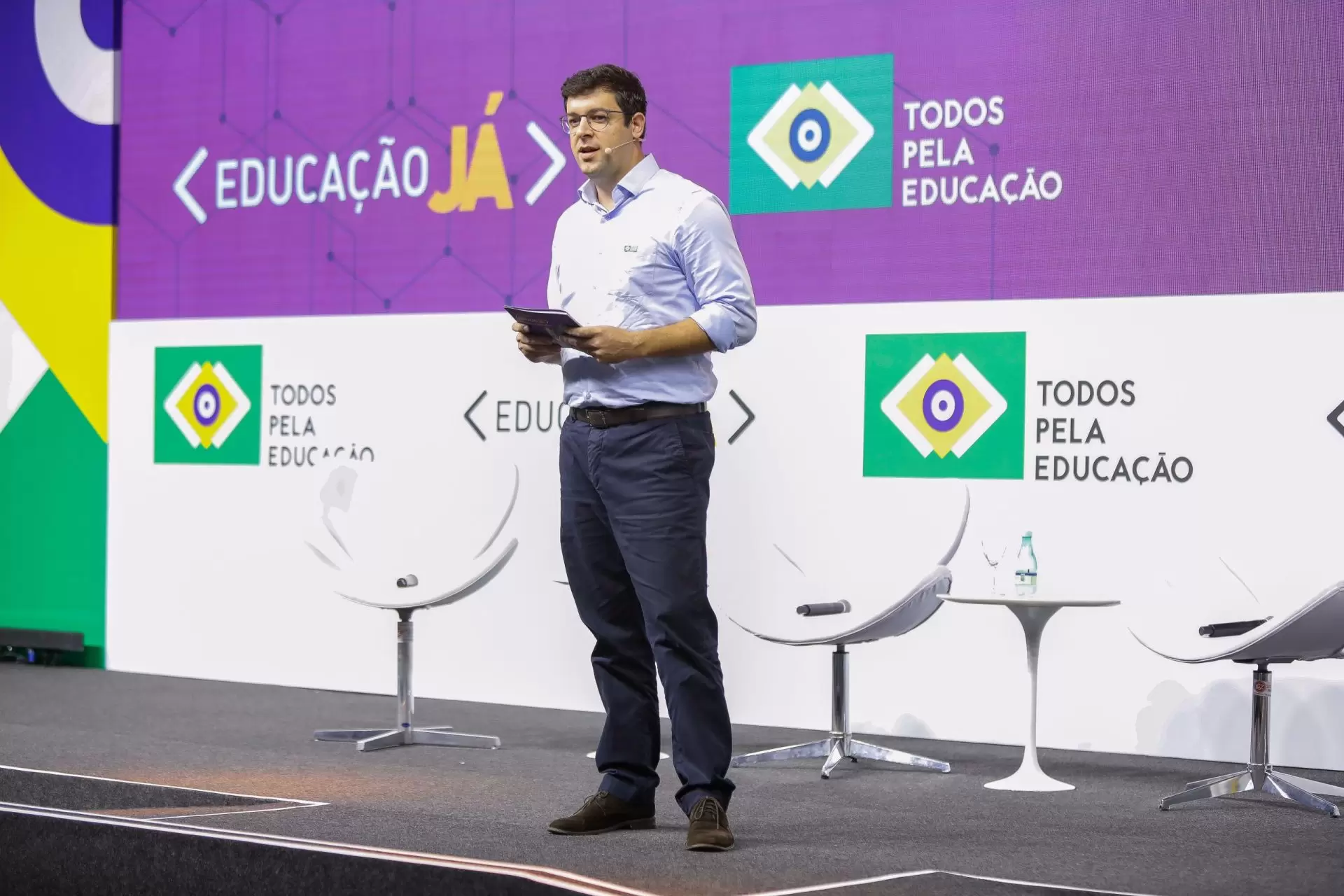
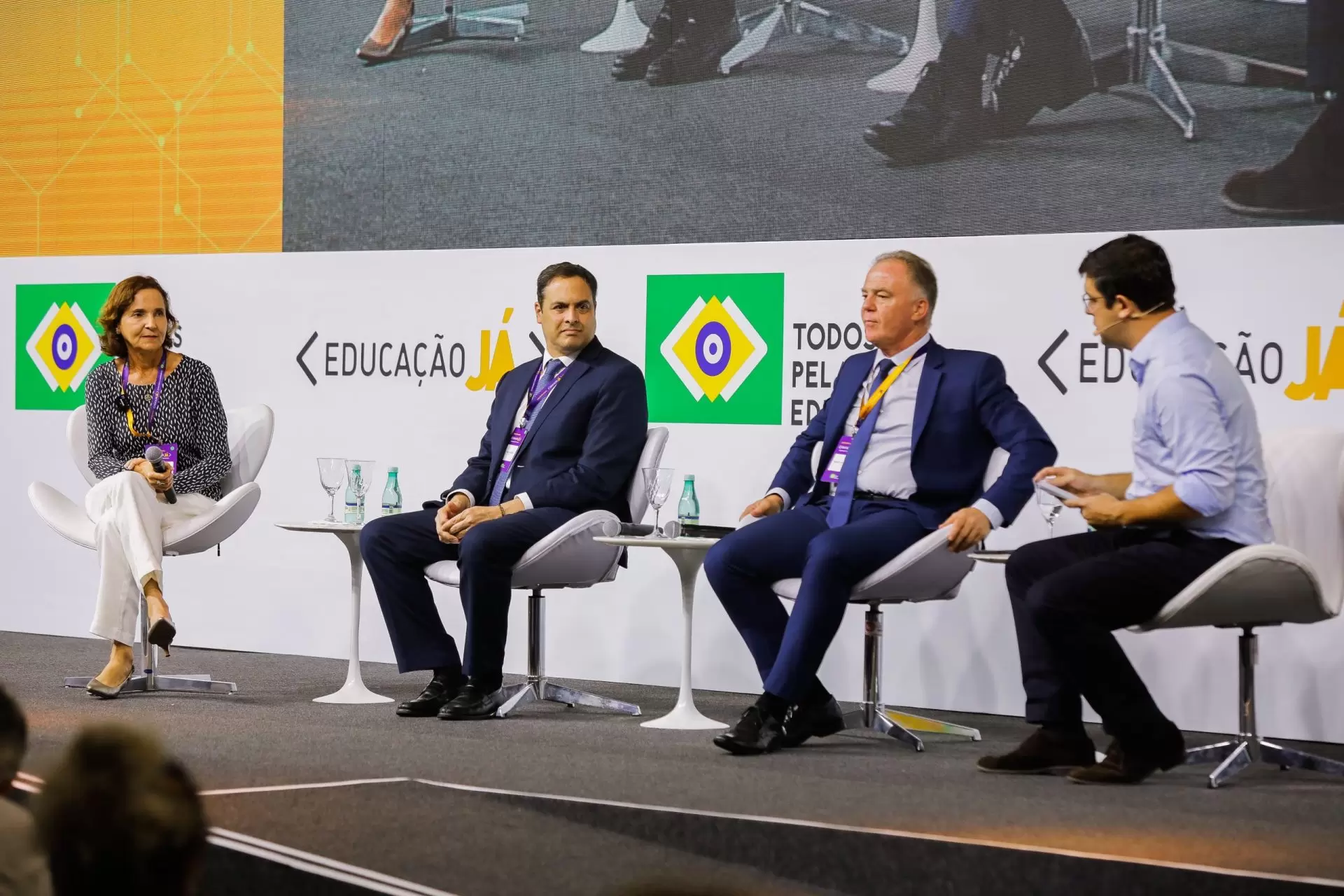
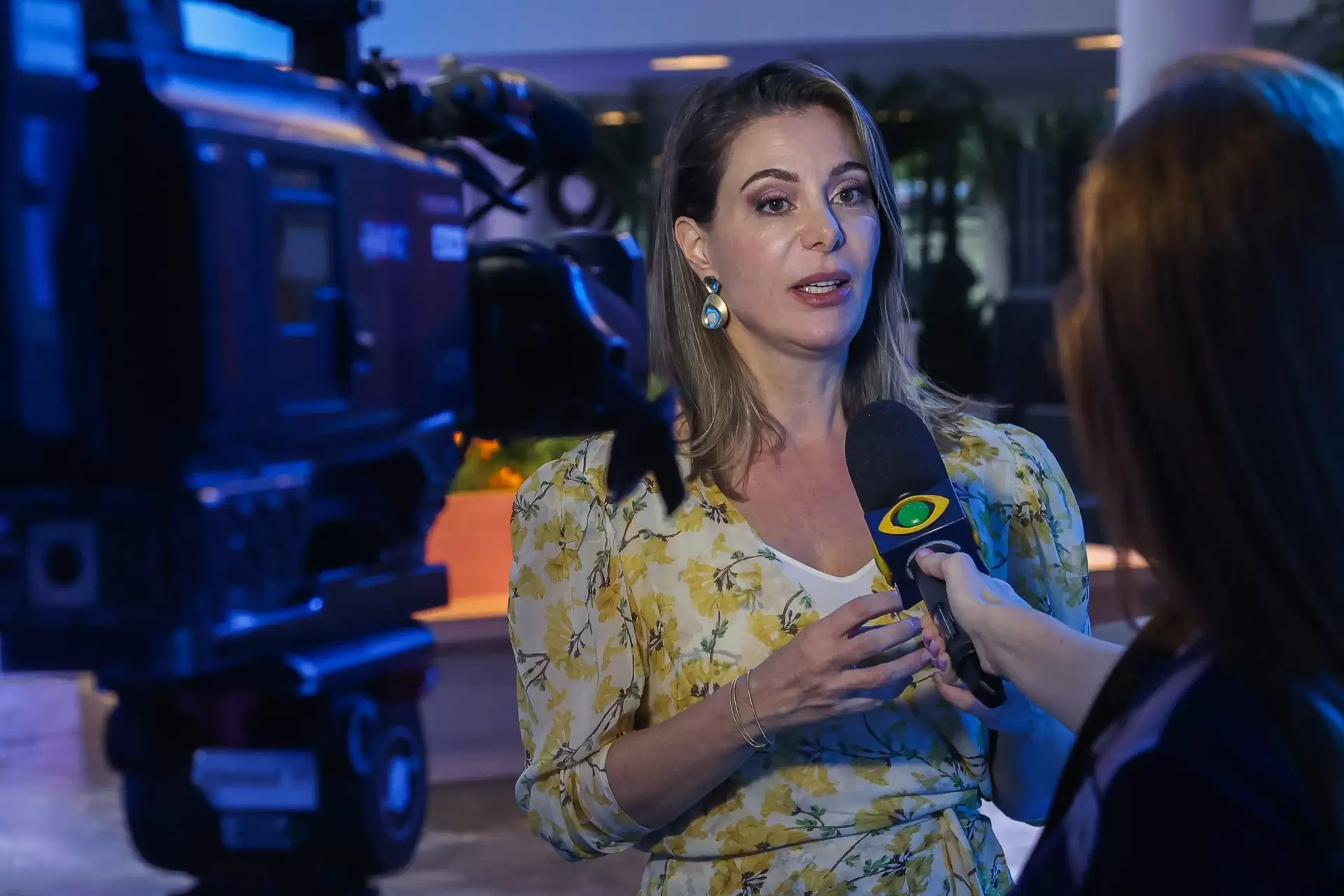

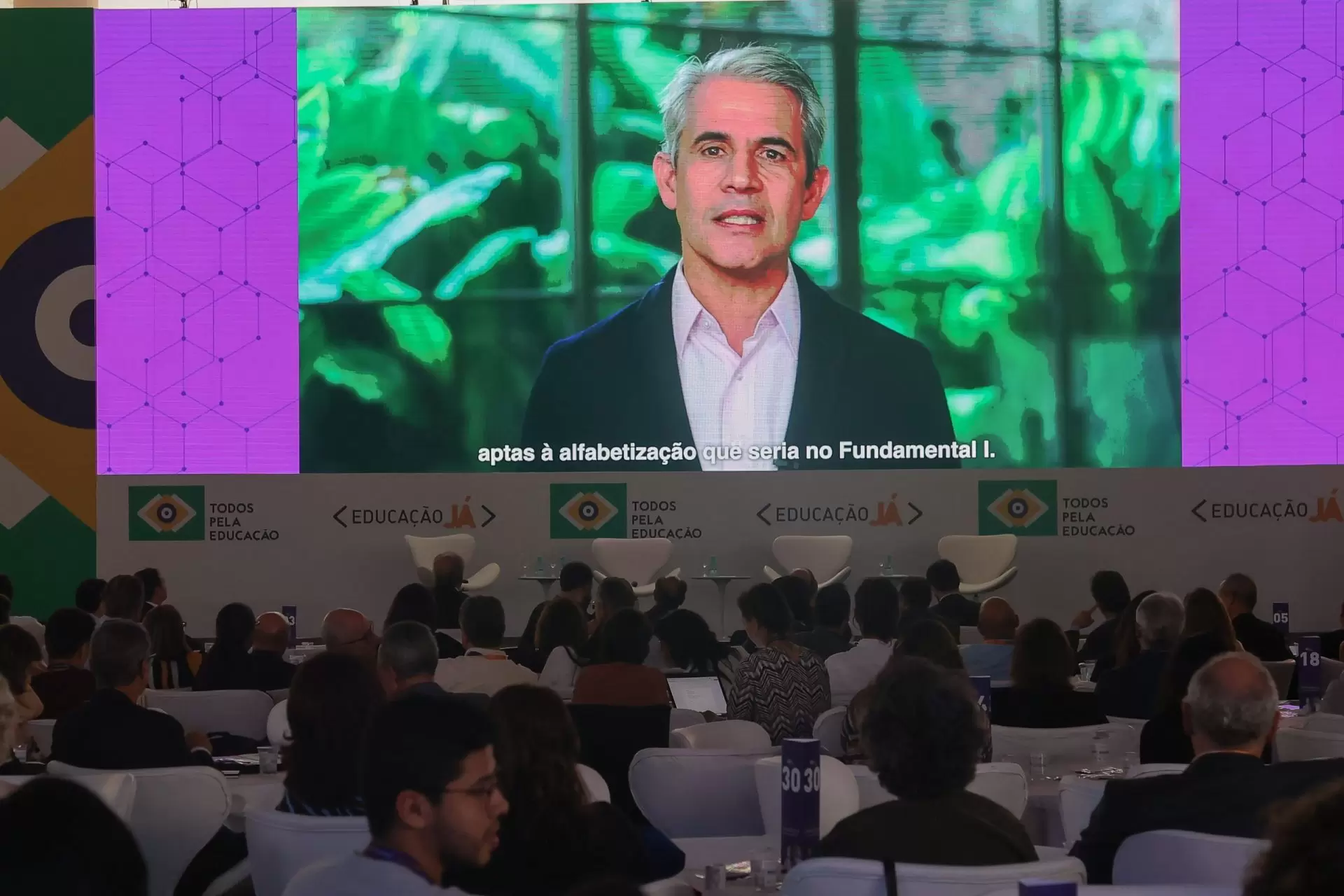
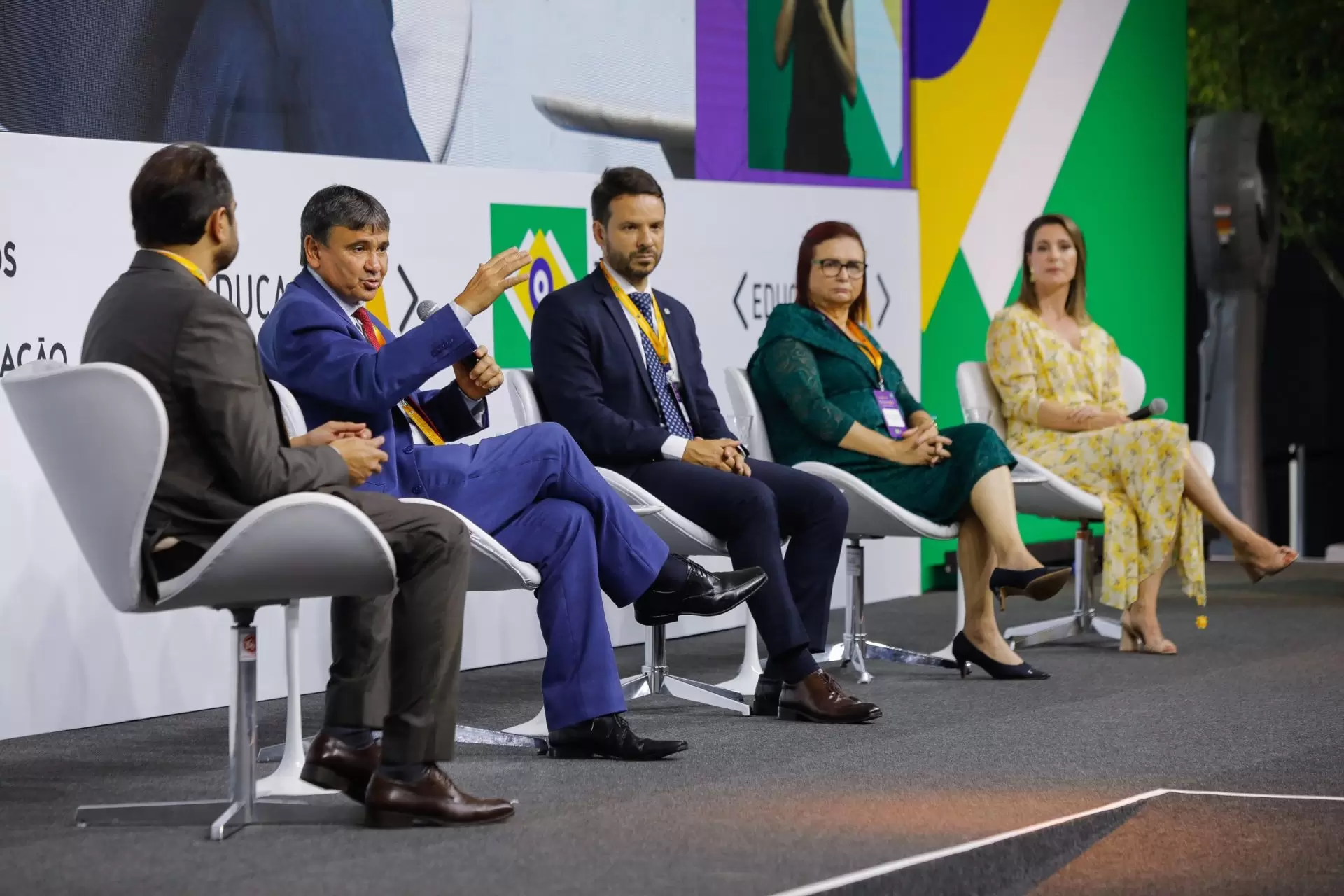

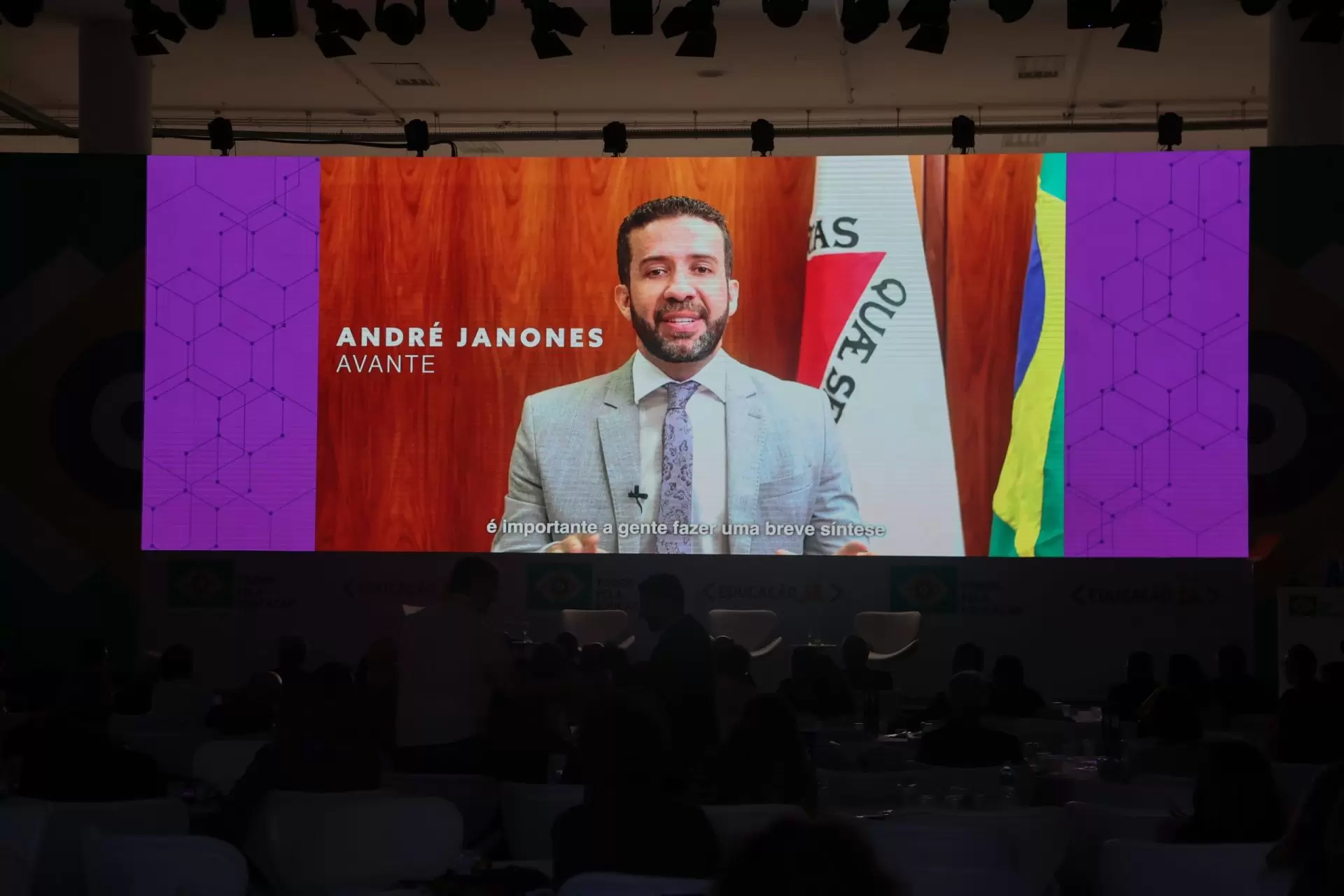
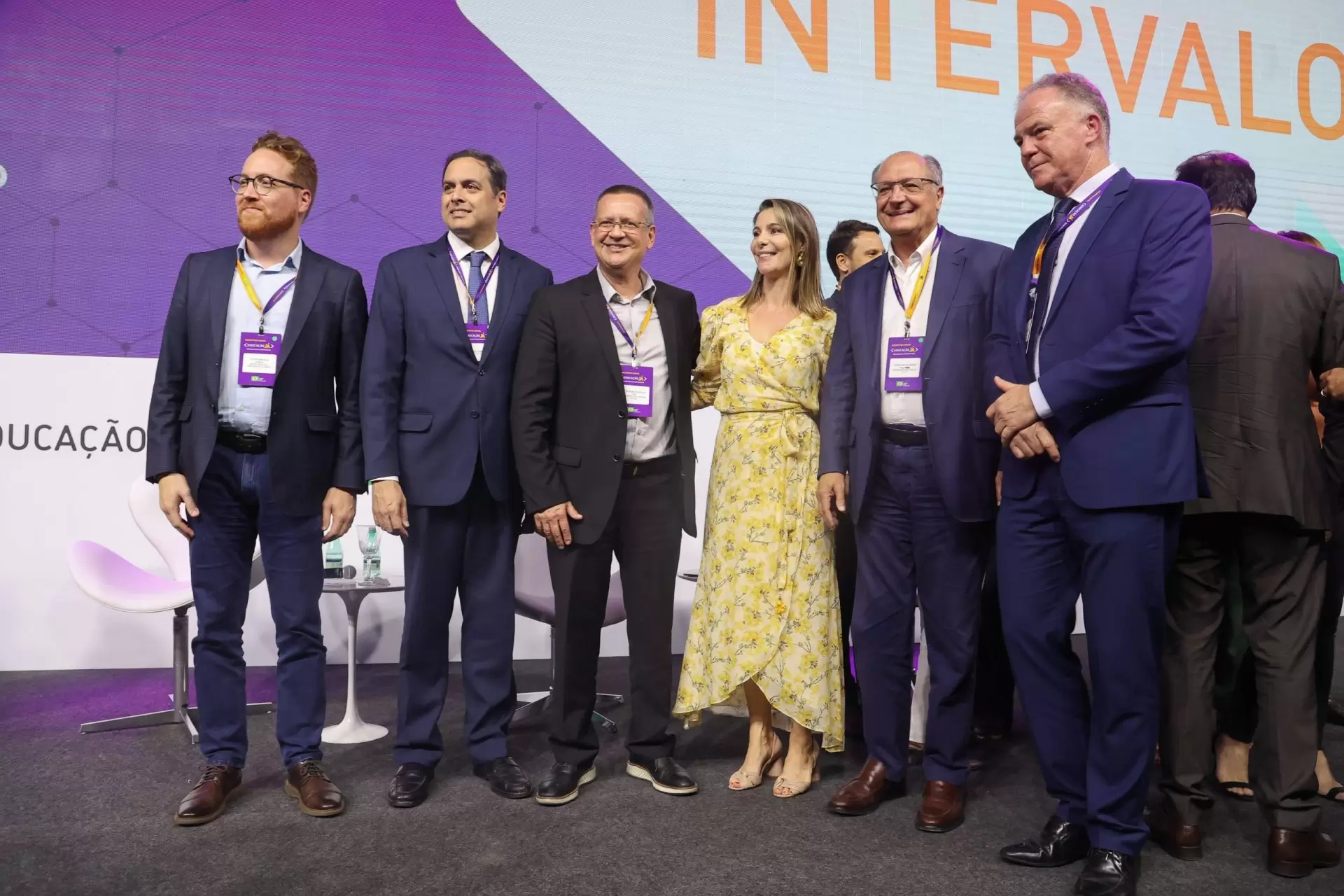

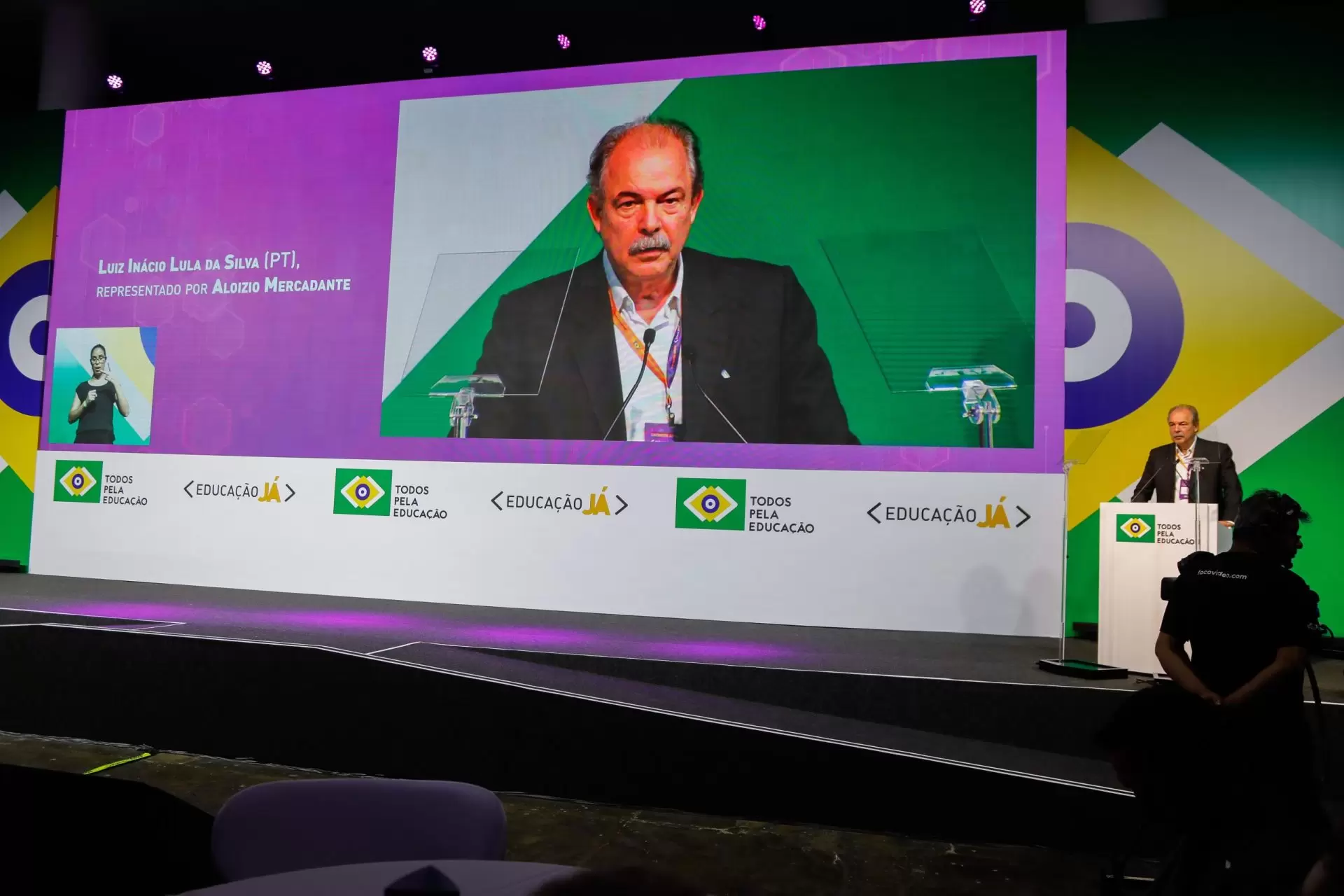
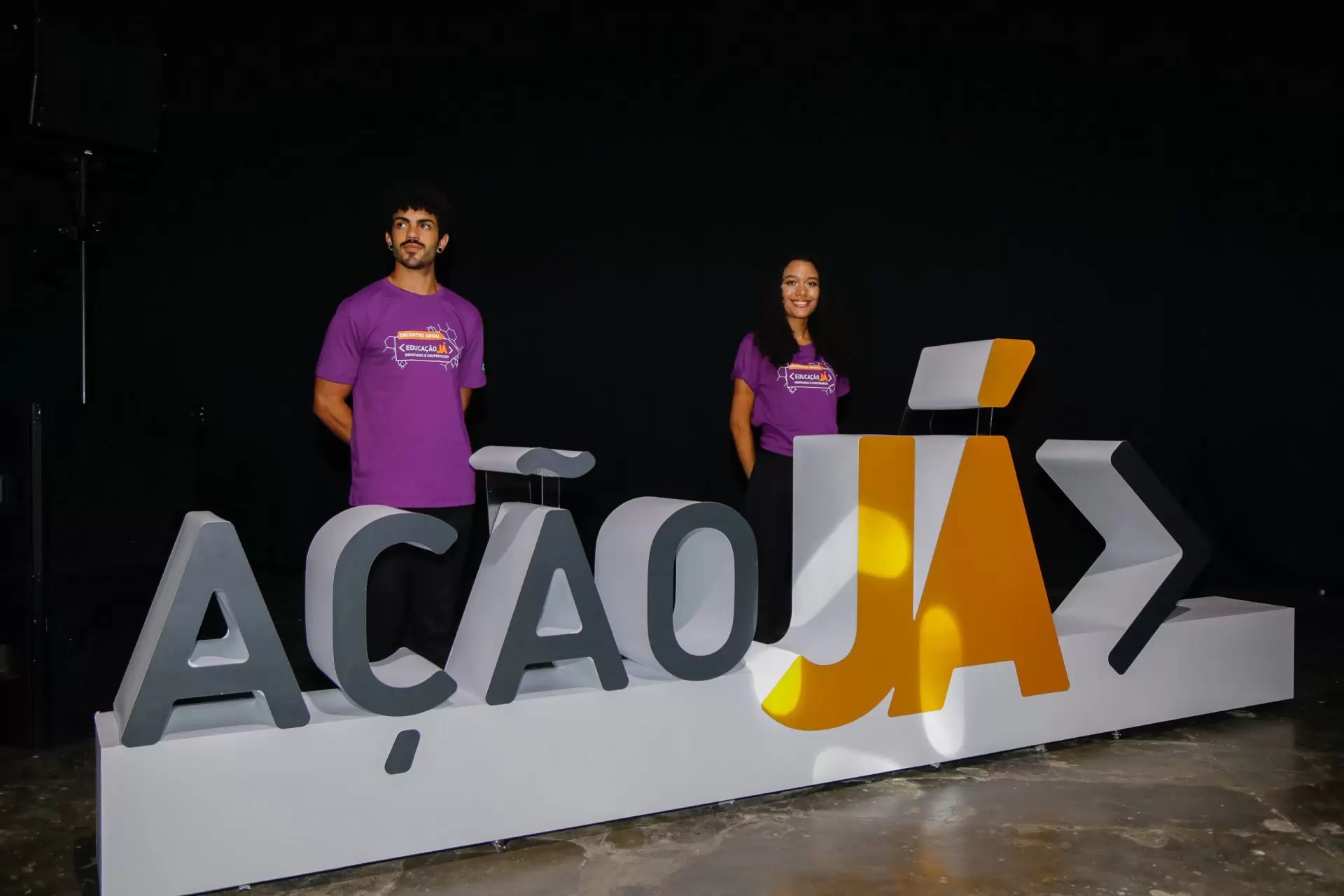
CLICK HERE FOR MORE PHOTOS OF THE ANNUAL EVENT
Event highlights
The closed event, which took place at the Bienal de São Paulo, received about 350 participants and had four panels that addressed: the role of legislative and state actors in the period of the pandemic, essential measures to overcome the impact of Covid-19 on Education and return to advance structurally in Teaching, inspiring experiences in Brazilian Education and, finally, a public call for the defense of Public Basic Education, regardless of political party, at a table that brought together figures from a varied political spectrum. Check out featured speeches in video or in writing.
ACCESSE THE EDUCAÇÃO JÁ 2022 DOCUMENT HERE
Panel 1: The role of the Forum of Governors and the National Congress in Education during the period 2019-2022
Dept. Israel Baptist (PSB)
“Fundeb is the son of Congress. It was born in parliament. We had a historic vote, where only 7 deputies voted against the new Fundeb.”
Dept. teacher Rosa Neide (PT)
“We see an omitted federal government that did not coordinate education during the pandemic. Each secretary making a personal effort, because national coordination was lacking”.
Dept. Idilvan Alencar (PDT)
“[On the importance of approving the National Education System] In Education, you cannot get results if you do things separately.
Wellington Dias (PT), former Governor of Piauí/Coordinator of the Forum of Governors
“I never thought of living this in my life: an anti-federation government. This lack of centralization forced us [governors] to assume a role. We established quotas and decided to vaccinate security and education first.”
“From now on, we need a well-articulated plan so that we have recovery for Education, with medium and long-term emergency measures”.
Panel 2: Educação Já – a systemic agenda for Brazilian Basic Education
Gabriel Corrêa, from Todos pela Educação
“The document Educação Já is the result of a collective effort, including several people who are at this meeting today. It was the result of much listening to various organizations, professors and specialists. An agenda made by many hands.”
Claudia Costin, Director of the Center for Educational Policies at FGV
“This document will serve as a guide for those who want to govern the country. We need to get back to having a strong and strategic agenda in Brazilian Education.”
Henrique Paim, former Minister of Education and director of the Center for the Development of Public Management and Educational Policies at FGV
“The most important thing about the Educação Já document is that it gives centrality to the agenda of governance and educational management”.
Professor Cleciane Alves, from the state network of Sergipe and from the Conectando Saberes network
“Listen to students, listen to teachers. Education is done through sharing.”
Alexsandro Santos, President of the School of Parliament and professor at Unicid
“The document Educação Já will serve as an instrument to mediate the public debate, to put at the center of the public debate what are the problems of the educational agenda and which are the main ones that we will solve. The document helps society to have a parameter to prioritize the Education agenda”.
Rozana Barroso, president of Ubes
“For us who defend Education, a document like Educação Já is very important. We, young people and students, want to move forward, go back to school and rebuild Brazil. And for that, we need quality education.”
Rodrigo Mendes, Master in Human Diversity Management from FGV and president of the Rodrigo Mendes Institute
“We need to make this document effective as a great national reference.”
Samuel Emílio, from Imaginable Futures
“It is important that the document Educação Já raises the issue of racial equality and equity in Education.”
Maria Helena Guimarães, former Executive Secretary of MEC, former Secretary of Education of São Paulo and president of Abave
“We need to understand that educational inequalities need to be tackled. This document serves as a compass.”
Panel 3: Brazil has something to learn from Brazil
Olavo Nogueira Filho, from Todos pela Educação
“The most effective experiences in the country, which we systematized in Todos, are relevant because they show that it is possible to make it happen, even in the most adverse contexts, and they challenge the idea that improving education is a very long-term task. It only takes 2-3 good moves, with continuity, to change the game.”
Izolda Cela (PDT), Governor of Ceará
“We have some characteristics that justify our good experiences: action that is launched and established as a priority status — really a priority, committed to goals. Another point concerns an investment in a regime of collaboration between the state and municipalities. Horizontally and respectfully. And another is engagement: of people, schools and partnerships.”
Paulo Câmara (PSB), Governor of Pernambuco
“The necessary advances in Education need to go beyond governments, we need State policies, very well monitored. This is what will change the country.”
Renato Casagrande (PSB), Governor of Espírito Santo
“Brazil is suffering a lot from discontinuity. Public policies need to be scaled to change the reality we are experiencing. The message for the next governors: have a commitment to Education to change the situation of Brazilian Education.”
Panel 4: Renewing the Commitment: The Future of Basic Education
(alphabetical order last name)
Geraldo Alckmin (PSB), Former Governor of São Paulo
“Unfortunately we are seeing, over the years, a drop in resources for Education. Priority without budget is just speech.”
José Fogaça (MDB), Former Mayor of Porto Alegre
“Approving the SNE in the Chamber of Deputies is fundamental, because without collaboration and federative cooperation between federal, state and municipal governments, Education has difficulty moving forward. But when this collaboration works, it produces very rich results.”
Gilberto Kassab (PSD), Former Minister
“We have to create mechanisms for states and municipalities to achieve educational goals. We cannot understand that the current speed of transformation is adequate to what we want for Education. A stronger hand is needed from the federal government and the National Congress”.
José Mendonça Filho (Union Brazil), Former Minister
“We need to understand Education as something much more comprehensive than something ideological. There must be social cohesion so that it actually becomes a priority at the three federative levels.”
Aloizio Mercadante (PT), Former Minister
“From here we leave with a flag that unifies us. We will always have differences, but we have a very solid foundation to put education as a priority and rebuild.”
Camilo Santana (PT), Former Governor of Ceará
“This Educational document already needs to be a guide! Regardless of the president who is elected, important for continuity and for the empowerment of society.”
Marina Silva (NET), Former Minister
“The context is one of post-war recovery, and in post-war recovery we have to bring together the best of the state, the private sector, society. It is not possible to think about politics that we are doing for society, but doing it with society”.

